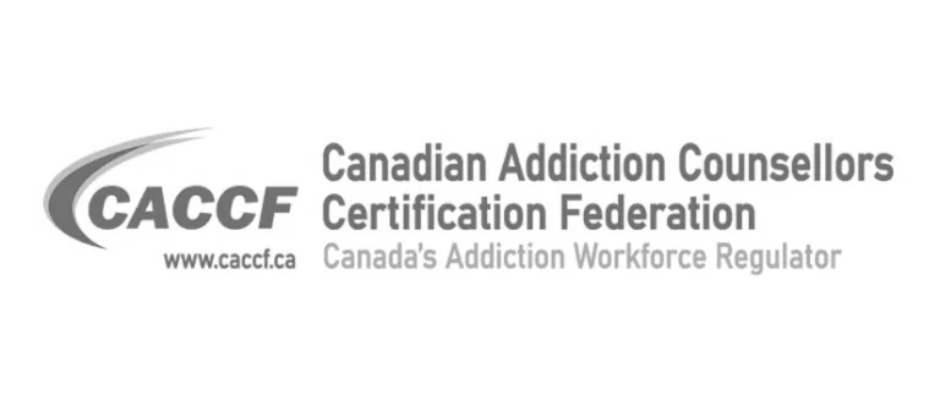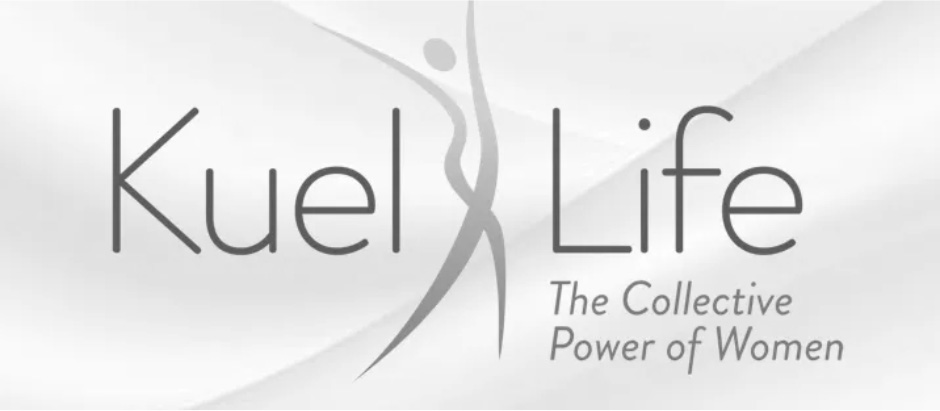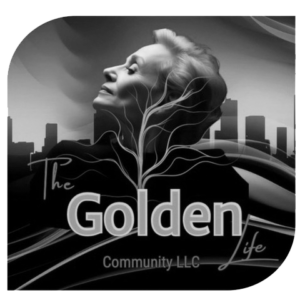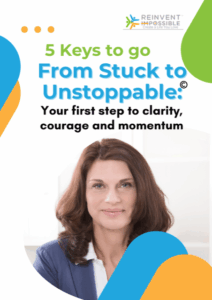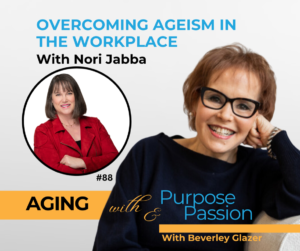
Overcoming Ageism in the Workplace with Nori Jabba
Nori Jabba’s journey is a masterclass in resilience and personal growth. From combatting ageism in the job market to landing a fulfilling role in community development, her insights are invaluable for professionals at any stage of their career, but especially those looking into overcoming ageism in the workplace.
Key Takeaways:
Balancing Family and Career: Nori speaks about the challenges she faced balancing a demanding career and motherhood, leading to her decision to start a consulting business.
The Harsh Reality of Ageism: Through Nori’s job hunting experiences, listeners gain insight into the subtleties of ageism in the hiring process, and how it affects self-esteem and employment prospects.
Adapting and Learning: Nori emphasizes the importance of adapting to the evolving job market, enhancing skills, and being open to feedback to remain relevant and competitive.
Building Confidence: Physical strength, self-care, and positive self-talk are highlighted as crucial components for maintaining confidence during job searches.
In today’s fast-paced job market, continuous learning has become more crucial than ever, especially for women over 50 facing ageism. Ageism, a pervasive issue, can undermine self-worth and create barriers in the workplace. Nori Jabba’s journey is a powerful testimony to the need for vigilance against such biases.
According to Nori, “I was told I wasn’t a good fit. I was told I was overqualified,” revealing the subtle ways ageism can manifest during job searches ([0:04:35]). Her experience led her to engage deeply with the underlying reasons behind these rejections, eventually seeking feedback
from an HR director. This interaction highlighted a critical insight: “Middle-aged women don’t listen,” and Nori learned to shift her focus to demonstrate active listening and openness during interviews ([0:08:12]).
The broader implications here suggest that embracing continuous learning, whether through formal education or self-improvement exercises, can dismantle harmful stereotypes. Moreover, leveraging modern tools like AI to keep skills up-to-date can further reinforce a commitment to growth and adaptability.
Prioritizing Physical and Emotional Well-Being
Building confidence and maintaining resilience in the face of repeated job rejections is vital. Nori’s story underscores the importance of taking care of oneself holistically. She shares a valuable lesson: “Building that confidence is huge…it was just sheer necessity that I realized, ‘Oh, wow, I have some areas where I can grow’” ([0:13:04]).
For Nori, this started with physical strength: “Getting physically strong to feel more confident about yourself” ([0:24:34]). Exercise, proper sleep, and self-care routines are foundational elements that can significantly impact how one feels about oneself and how one is perceived by potential employers.
In addition, Nori emphasizes the necessity of a positive self-talk and, if needed, seeking therapeutic help: “Get a therapist, whatever you need to do, because you do deserve this great job and you are special and wonderful” ([0:25:16]).
This holistic approach not only combats the vicious cycle of declining self-esteem but also projects a more assured and positive demeanor in professional settings.
Redefining Success and Creating Your Own Table
A pivotal theme in Nori’s narrative is the redefinition of success and the creation of one’s own supportive space. Traditional markers of career achievement can sometimes distract from true personal and professional fulfillment. Nori’s evolution from seeking high-level positions to finding satisfaction in a municipality role reflects this shift: “I ratcheted back what my career ambitions were so that I could look at myself more holistically, at what I really needed to do to be happy” ([0:21:41]).
Nori’s book, Keeping Your Seat at the Table, encapsulates this transformative journey. “The table is the most perfect metaphor for this, and especially for women. You know, when we think about work and what it means to have a seat at the table” ([0:16:40]). The table metaphor extends beyond professional life, symbolizing the supportive networks and personal goals that enrich one’s journey.
Building a personal table involves embracing one’s age and experiences, without hiding qualifications or career gaps out of shame: “Put that year on your resume and own it. Own your experience and stand up tall” ([0:27:53]). This authenticity can combat assumptions of incompetence and instead highlight one’s vast experience.
The journey to overcoming ageism in professional environments is multifaceted, demanding a commitment to lifelong learning, holistic self-care, and a redefinition of success. Nori Jabba’s journey offers a blueprint for women navigating midlife career transitions. By tackling ageism head-on, maintaining resilience, and creating supportive networks, women can find renewed purpose and fulfillment in their careers.
Connect with Nori Jabba:
https://www.norijabba.com https://www.facebook.com/njabba https://www.instagram.com/bnjabba/ https://www.linkedin.com/in/nori-jabba/
Connect with Bev:
Facebook Group https://www.facebook.com/groups/womenover50rock
https://www.linkedin.com/in/beverleyglazer/
Get the Fulfillment Guide: https://reinventimpossible1.lpages.co/life-perspective-inventory
Need advice? Schedule a time to talk: https://calendly.com/reinventimpossible/15min




